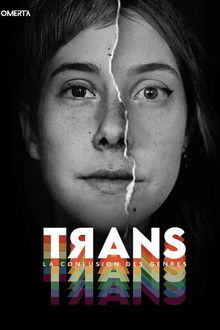In Quebec, the lakes we love and take for granted are quickly perishing, as highlighted by the proliferation of aquatic plants and algae in our water bodies. With images of lakes and dozens of interviews, the documentary points the finger at those responsible for this decline.
Related Movies
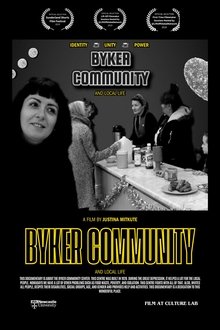
Byker Community (NaN)
This documentary is about the Byker Community Centre. This centre was built in 1928. During the great depression, it helped a lot for the local people. In modern days, we have plenty of other problems, such as food waste, poverty, and isolation. This centre fights with all of that. Also, it invites all people, despite their disabilities, social groups, age, and gender and provides help and activities. This place is magical and hospitable.
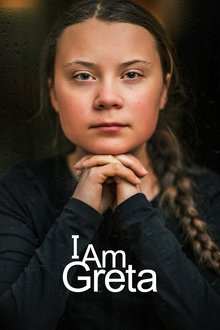
I Am Greta (2020)
Greta Thunberg, a 15-year-old student in Sweden, started a school strike for the climate as her question for adults was, if you don’t care about my future on earth, why should I care about my future in school? Within months, her strike evolved into a global movement as the quiet teenage girl on the autism spectrum becomes a world-famous activist.
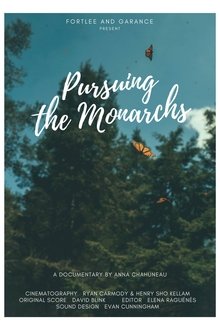
Pursuing the Monarchs (2017)
The story of the Monarch butterfly: a symbol of American pride and the embodiment of the returning dead in Mexico. It would be a happy story, only, today they are dying. The monarch butterflies population has declined by up to 80% in the last decade. Who is to blame?
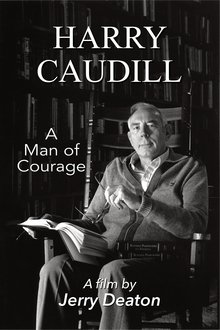
Harry Caudill: A Man of Courage (2015)
One of the most important Kentuckians of the 20th century, Harry Caudill brought the story of Appalachia to national attention when his book “Night Comes to the Cumberlands” was released in 1963. The nonfiction account of Eastern Kentucky’s coal region, part history and part polemic, eloquently recounted the exploitation of Appalachia’s land and its people by business and government interests, and made Caudill a national spokesperson for his homeland. Harry Caudill spent his life advocating for Eastern Kentucky, with the aim of helping the powerless as well as securing the region’s unmatched natural resources for future generations. His work led to lasting government reforms for Appalachia, and his legacy remains a touchstone for activists today.

Detection (2012)
DETECTION. Consideration of past, present and future of a small village in Germany. For over a century — wars and states went by — the military is the largest employer. The everyday life of the community is inextricably linked to the events on the nearby military training area. Diaries, daily instructions, petitions, letters and photos tell about daily life at different times.

Earth Overhaul (2011)
A group of scientists are thinking outside the box for ways to reverse the effects of global warming. And who better to save the earth than National Geographic Channel's host of the World's Toughest Fixes, Sean Riley? He'll join these experts in the labs and in the field to see what wacky new technologies are being developed, like sending mirrors into space and reducing the greenhouse emissions chickens produce.
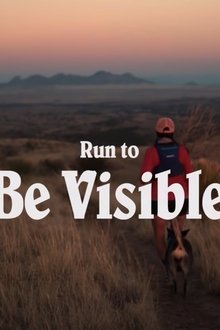
Run to Be Visible (2021)
Lydia Jennings is a member of the Huichol (Wixaritari) and Pascua Yaqui (Yoeme) Nations and holds a doctorate in soil microbiology. Her work is dedicated to environmental science and the essential role of Indigenous communities in these spaces. Her hope is to create more inclusive academic and environmental landscapes. In place of her graduation, which was canceled as a result of the pandemic, Lydia instead celebrated by running 50 miles in honor of the Indigenous scientists and knowledge keepers who came before her. It’s a run to honor the past and present while looking towards the future.

Before the Flood (2016)
A look at how climate change affects our environment and what society can do to prevent the demise of endangered species, ecosystems, and native communities across the planet.
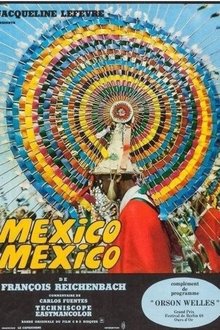
México, México: Mexique en mouvement (1968)
"Mexico begins where the roads end ”. Mexican writer Carlos Fuentes tells us about the history of Mexico: its invasions, its revolutions, its sacred lands, its forgotten legends, its religious rituals and this frightening misery. François Reichenbach and his camera sink into the dust, on this sacred land, where "the land never ends."

Trashed (2020)
The short reportage film depicts the situation of hard-to-recycle waste. Our guides are a local government employee and the staff of Technical Services Zlín, whom the director interviewed and filmed at work. In the local context of an East Moravian municipality, it examines the technical, economic and political aspects of the problem. In addition, there are the inevitable social issues regarding the wider sustainability of the contemporary consumer lifestyle.
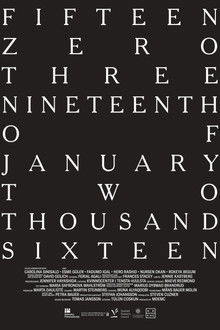
fifteen zero three nineteenth of january two thousand sixteen (2024)
fifteen zero three nineteenth of january two thousand sixteen explores how everyday routines and gestures are transformed when a mother loses her child in the violence impacting Swedish outskirts since the early 2000s. The film resists simplistic media depictions of the suburbs and shows how a home can hold both mourning and the mobilization of women to fight for their own and others' children.
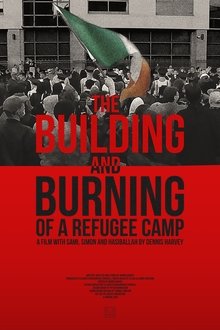
The Building and Burning of a Refugee Camp (2024)
Three men seeking asylum in Ireland find themselves on the streets, caught between restrictive migration policies and an increasingly aggressive far-right movement. Dennis Harvey captures an explosive sequence of events on the streets of Dublin.
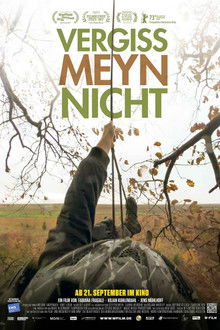
Lonely Oaks (2023)
Fall 2018: The Hambach Forest becomes a chaotic scene of the climate conflict. In the midst of this chaos, film student Steffen Meyn has a fatal accident. Based on footage he collected over two years, we follow Steffen’s path up the trees and into an activism full of contradictions.
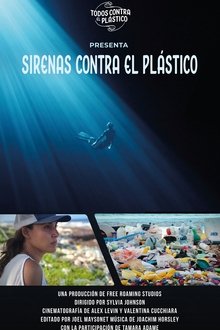
Mermaids Against Plastic (2020)
Tamara is from the ocean and water runs in her veins. Born in a fishing village on the Mexican coast, she became a full-time scuba instructor. When she discovers plastic in her beloved ocean, she sets out to get the diving industry to stop using single-use plastic.

Germany in Autumn (1978)
Germany in Autumn does not have a plot per se; it mixes documentary footage, along with standard movie scenes, to give the audience the mood of Germany during the late 1970s. The movie covers the two month time period during 1977 when a businessman was kidnapped, and later murdered, by the left-wing terrorists known as the RAF-Rote Armee Fraktion (Red Army Fraction). The businessman had been kidnapped in an effort to secure the release of the orginal leaders of the RAF, also known as the Baader-Meinhof gang. When the kidnapping effort and a plane hijacking effort failed, the three most prominent leaders of the RAF, Andreas Baader, Gudrun Ensslin, and Jan-Carl Raspe, all committed suicide in prison. It has become an article of faith within the left-wing community that these three were actually murdered by the state.

Winged Migration (2001)
This documentary follows various migratory bird species on their long journeys from their summer homes to the equator and back, covering thousands of miles and navigating by the stars. These arduous treks are crucial for survival, seeking hospitable climates and food sources. Birds face numerous challenges, including crossing oceans and evading predators, illness, and injury. Although migrations are undertaken as a community, birds disperse into family units once they reach their destinations, and every continent is affected by these migrations, hosting migratory bird species at least part of the year.
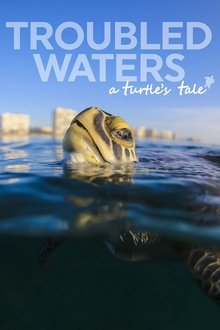
Troubled Waters: A Turtle's Tale (2019)
Exploring the impact of human behavior on our environment from the perspective of one of South Florida's most beloved and fragile underwater creatures: the sea turtle. A critical look at the effects of global warming, water pollution, and our "throw-away" plastic lifestyle on this keystone species...and inevitably ourselves.
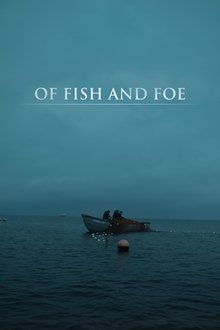
Of Fish and Foe (2018)
The Pullars are the last family using traditional methods to fish for wild Atlantic salmon off the coast of Scotland. When these include killing seals, the salmon’s natural predators, conflict erupts. Animal activist groups Sea Shepherd and Hunt Saboteurs oppose the Pullars at every turn, despite the legality of the fishermen’s actions and the consequences to their livelihood. Challenging preconceptions, this ambiguous doc puts modern environmentalism under the microscope.
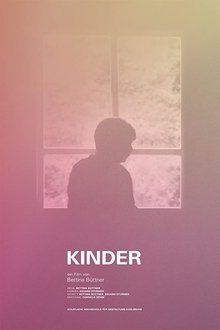
Kids (2011)
In Bettina Büttner’s exquisitely lucid documentary Kinder (Kids), childhood dysfunction, loneliness, and pent-up emotion run wild at an all-boys group home in southern Germany. The children interned here include ten-year-olds Marvin and Tommy. Marvin, fiddling with a mini plastic Lego sword, explains matter-of-factly to the camera, “This is a knife. You use it to cut stomachs open.” Dennis, who is even younger, is seen in a hysteric fit, mimicking some pornographic scene. Boys will be boys, but innocence is disproportionately spare here. Choosing not to dwell on the harsh specifics, Büttner reveals the disconcerting manner in which traumatic episodes can manifest themselves in the mundane — a game of Lego, Hide and Seek, or Truth or Dare. Filmed in lapidary black-and-white, Büttner’s fascinating film sheds light on childhood from the boys’ characteristically disadvantaged perspective — one not yet fully cognizant — leaving much ethically to ponder over.
